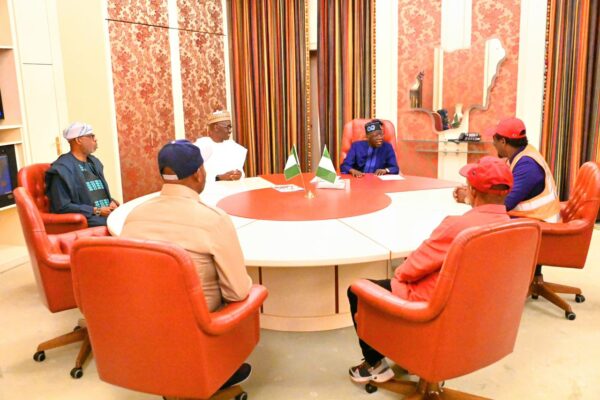NLC to Push for N250,000 Minimum Wage in Meeting with President Tinubu

NLC to Demand N250,000 Minimum Wage During Talks with President Tinubu
The Nigeria Labour Congress (NLC) has announced its intention to demand a minimum wage of N250,000 during a scheduled meeting with President Bola Tinubu at the State House, Abuja, today.
Head of Public Affairs for the NLC, Benson Upah, confirmed that Labour will firmly advocate for the N250,000 proposal during the discussion. "We are going to the table with our demand of N250,000 even as the cost of living has since moved up. We have been very reasonable and patriotic," Upah stated.
The meeting aligns with President Tinubu's commitment to further consultations with stakeholders on the minimum wage, following his Democracy Day speech on June 12, 2024, where he promised to submit an executive bill on the new national minimum wage to the National Assembly.
On June 25, the Federal Executive Council, chaired by President Tinubu, deferred discussions on the new minimum wage memo to allow for more stakeholder engagement before the executive bill is presented.
The President's decision came after receiving the Tripartite Committee on Minimum Wage report from the Secretary to the Government of the Federation, George Akume. The committee, led by Chairman Bukar Goni Aji, recommended a minimum wage of N62,000, based on submissions from federal and state governments and the Organized Private Sector.
While Labour has recommended a N250,000 minimum wage, state governors have expressed concerns about their ability to meet even the N62,000 figure.
Labour unions argue that the current N30,000 minimum wage is inadequate, particularly in light of rising food inflation driven by the removal of petrol subsidies and the unification of forex windows.
Following the Federal Executive Council meeting, President Tinubu and Vice President Kassim Shettima met with governors and ministers at the 141st National Economic Council meeting to discuss the new minimum wage, though the outcome remains undisclosed.
The ongoing minimum wage negotiations have been contentious, with no consensus reached between Organized Labour, government representatives, and the private sector. The impasse led to an indefinite industrial action by labour unions on June 3, which disrupted economic activities and government operations nationwide, including shutting down airports, hospitals, banks, the national grid, and legislative assemblies.
The industrial action was suspended after Labour leaders met with top government officials who assured that the government was willing to increase its offer.
President Tinubu established the tripartite committee in January to negotiate a new minimum wage before the expiration of the Minimum Wage Act of 2019 in April 2024. The committee includes representatives from Organized Labour, federal and state governments, and the Organized Private Sector.





